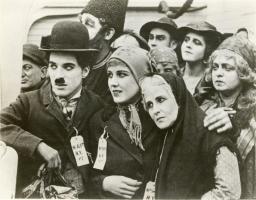A Clockwork Orange, by Stanley Kubrick: summary, analysis and characters of the film
A clockwork orange (A Clockwork Orange, in English) is a film from the year 1971. It was directed and adapted for film by Stanley Kubrick and is based on the novel by Anthony Burgess, published in 1962.
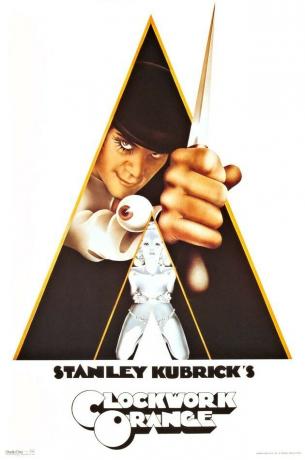
The story takes place in the UK in a dystopian future marked by violence and authoritarianism. Alexander Delarge, the protagonist, leads a gang of marginalized youth who spread chaos through unjustified acts of violence.
A clockwork orange recounts the crimes of a gang of British youths led by Alex. The latter, after being tried and sentenced to prison for his actions, agrees to undergo treatment called Ludovico in order to reduce the time of the sentence, a treatment that is still in phase experimental. Then everything takes an unexpected turn.
By exploring timeless social and political issues, A clockwork orange he reflects on topics such as juvenile delinquency, psychiatry, free will and the moral corruption of the authorities. Disturbing and full of raw images of violence, it has become a cult film acclaimed by audiences and critics and has emerged as one of Kubrick's iconic works.
Movie trailer
Summary of the movie
Beginning of the story
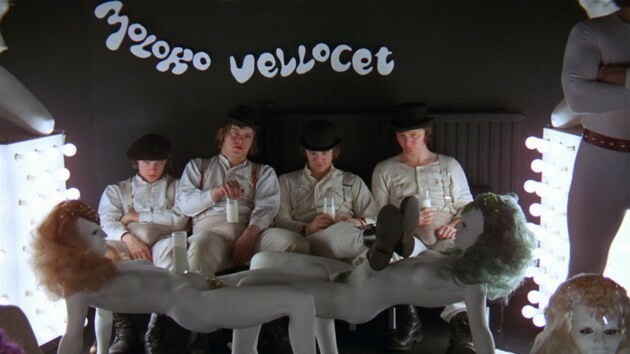
The movie begins with Alex, Dim, Pete, and Georgie sitting at a table in their favorite bar. With their clothes full of blood, they drink "milk with" (with mixed drugs) while deciding what to do that night. From the beginning, his boredom, his lack of vital purpose and common sense is evident.
What unites them is the desire for violence and chaos: they are a band, which is clearly evident in the outfits they wear like uniforms.
Attack on beggar
As soon as they leave the bar, they find an old drunk singing, lying on the floor. The companions surround him and begin to threaten him.
Ready for aggression, the beggar shows indifference in the face of his own death, outlining with his words the portrait of a dystopian reality in which they find themselves: "I don't want to live, not in a dirty world like this".
Story development
Gang fight
The gang continues their way to an abandoned cinema in which a gang rape is taking place. The cruelty of the act contrasts with the soundtrack. It is a happy music that suggests a circus or pilgrimage atmosphere. Through this the idea of violence is symbolized as a spectacle or playful act.
Alex and the companions interrupt the scene, not to save the victim, but to surprise the attackers. Billyboy and his companions are a rival gang. The existence of another gang underscores the weight of juvenile delinquency in this dystopian England.

The protagonists win the battle and flee euphoric. They steal a car and Alex drives madly, risking his own life to feel the adrenaline, the only way to feel pleasure. They intentionally cause accidents like a game, looking for laughter and ultra-violent attacks.
Attack on Frank and his wife
That same night, the band knocks on the door of a writer and his wife. Alex says that he had an accident and that he needs to use the phone to call for help. The couple let them in and then the band invades the house, covering their faces with false noses and masks that recall carnival, joy and fun.
As he laughs and sings the song "Singing in the rain", Alex beats up the man and the gang rapes the woman to death. The scene shows that, in that sadistic world, any gesture of empathy turns into vulnerability.

The life of Alexander Delarge
After committing the crimes the bandits return home. The building where Alex lives is deserted, with rubble on the floor, showing an almost apocalyptic scene. The place seems suddenly abandoned, as if it was no longer inhabited.
The protagonist lies down in bed and listens to Beethoven's Ninth Symphony, his favorite piece of music, while he remembers and imagines scenes of violence and death. In the morning, the viewer discovers that the criminal lived with his parents and was enrolled in school.
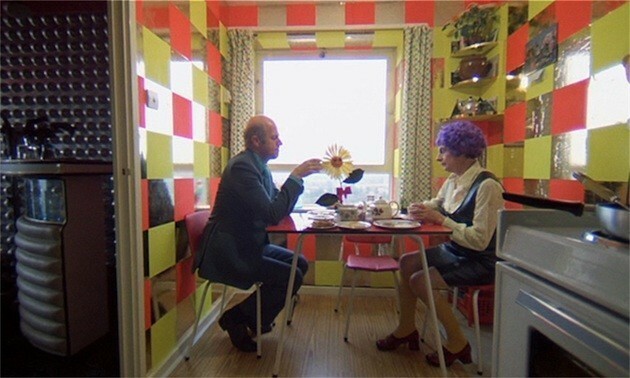
Alex does not attend classes and falls asleep. Meanwhile, her parents talk and wonder what is the matter that keeps him on the street until so late. Yet both are disconnected, tired, without the time or disposition to monitor the child's behavior.
They are visited by the school counselor, who suspects that Alex and his gang are the perpetrators of the crime against the writer. He lets them know that the young man will be tried as an adult and runs the risk of going to prison. Observing his own life, the parents wonder where the origin of this resentment is, without finding an explanation: "You have a good home, good parents who love you... Is it some demon in you? "
Fight between the companions
Alex hits Dim when they are at the bar and Dim starts laughing at a woman who is singing the Ninth Symphony. Dim replies, "I'm not your brother anymore." Although the friction seems temporary, the seed of discord is sown in the group.
As Alex has sex with two women he meets at the record store, the rest of the band questions his leadership and says they want bigger assignments and more money.
When he returns, he hears the plans of his companions and decides to mark his position: he throws Georgie and Dim to the river and injure the second in the hand when he pretended to extend his arm to help him. In the next scene, they are already out of the water, but the friendship has been marked. Alex gives in to the companions' plan and invades the house of the "cat woman."
Attack on the house of the cat woman and betrayal of the gang
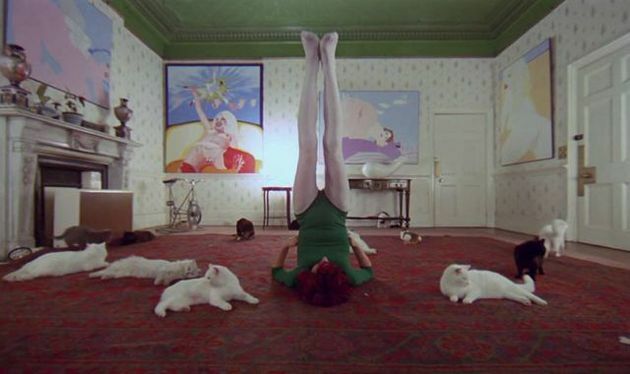
The work seems simple: the house is filled with works of art and other valuable objects, and it is only guarded by a woman who lives with her cats. When the bell rings, Alex uses the same excuse as with the writer: he claims to have had an accident and needs a phone to call for help. The woman recognizes him and calls the police immediately.
Masked, the protagonist invades the house and fights with the woman, whom he murders with a statue in the shape of a penis. This object acquires a symbolic character since it refers to the sexual assaults that run through the narrative.
His classmates wait for him at the door, but they break a bottle in his face and leave him temporarily blind. Lying on the ground, unable to escape the police, he is imprisoned. His despair at his own pain contrasts with the pleasure he feels at the pain of others: for the first time, some humanity and fragility can be seen in him.
Alex in prison and the minister's visit
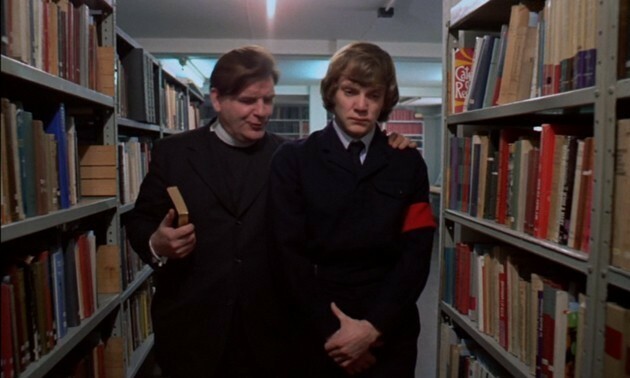
In the delegation, Alex is beaten by a group of policemen. Thus, the roles are exchanged and Alex becomes a victim of violence. His advisor visits him and, knowing the crime, repudiates him and spits in his face. He is sentenced to 14 years in prison.
In prison, Alex begins to study the Bible and is fascinated by all the bloody episodes. He establishes a relationship with a priest, with whom he talks about Ludovico's treatment. The treatment, still in an experimental phase, aimed to rehabilitate criminals in record time, eliminating their impulses through psychological conditioning.
The protagonist discovers that the minister will visit the prison looking for guinea pigs to apply the treatment, so he asks the priest to recommend it. He dislikes the idea and explains that this method does not cure anyone, but only suppresses the will (free will).
By the way, says the priest: "The question is whether the treatment really makes someone good. Goodness comes from within. It is a choice. When a man has no choice, he ceases to be a man. "
Ludovico treatment

After being injected with a drug, Alex is immobilized with a straitjacket. He also wears a motorized helmet and clips on his eyes to force him to keep them open. Being subjected to images of extreme violence, he begins to feel bad and begins to feel the effects of adversion therapy. "It's funny how colors in the real world only look real when we see them on a screen," he says.
After listening to the inner monologue of the protagonist, the explanation of the scientists is heard: the The drug provokes paralysis and terror, leaving the patient more vulnerable to the suggestions of conditioning. Thus, the Ludovico method fights cruelty through more cruelty.
This becomes more evident when the nurse declares, in front of the suffering of the patient that: "Violence is a terrible thing. That is what you are learning now. Your body is learning. "
Alex's body is forced to react negatively to any scenario involving aggression or sex. By chance, the Ninth Symphony plays in one of the videos, causing the young man to scream that "this is a sin." The scientist comforts him by telling him that he will be released.
In the next scene, the former delinquent is displayed in a box with the minister, who intends to show that the Ludovico method was created to protect good citizens. To achieve this, he shows Alex's passivity in the face of insults, humiliations and attacks. In addition, a half-naked woman is introduced to Alex, who when touching her breasts begins to feel bad again. The audience applauds with pleasure.
The priest reacts against this degrading spectacle, stressing that it is not about a true recovery and that there is no sincerity in Alex's actions, just as he had foreseen: "He ceased to be a criminal but also ceased to be a creature capable of making choices moral ".
The minister affirms that the State is not concerned about ethical issues, but about the decrease in crime and concludes by stating that the young man, now docile, is ready to be crucified and not to crucify.
Police violence and refuge in the writer's house
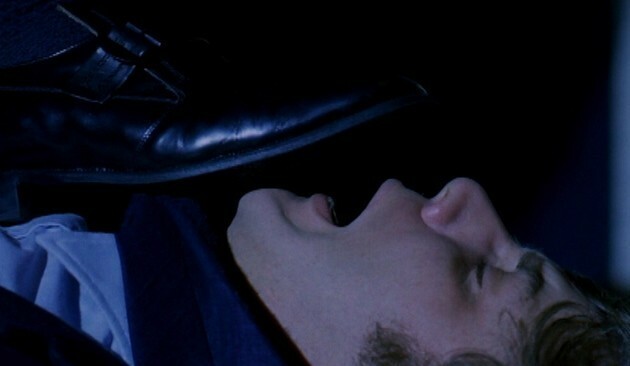
The effect of the treatment becomes news very soon. Alex tries to return home to his parents, but is rejected. Alone, he wanders the street until he meets the old beggar that he had beaten. He recognizes him and calls his companions, who beat him without him being able to defend himself.
Two policemen burst onto the scene: they are Dim and Georgie, who now serve as agents of the authorities but are still criminals. They take Alex to a forest and beat him for revenge.
He manages to escape and asks for help in a house. The writer lives there, now a widower and paralyzed. The man decides to help him and give him shelter without realizing who it is. Frank is, after all, a dissident intellectual harshly criticizing the government's authoritarian measures. For him, the weapon used by authoritarian governments to control the people is fear: "The common people sell freedom for a quieter life."
But although Frank does not agree with the use of violence as a punitive means, everything changes when he recognizes Alex's voice when he sings "Singing in the Rain" and decides to take revenge. Knowing that the Ninth Symphony now incites him to a suicidal state, the writer puts a sleeping pill in his soup and locks him in a room.
Alex awakens to the sound of music, through huge columns of sound, despairing in such a way that he throws himself out of the window.
Outcome
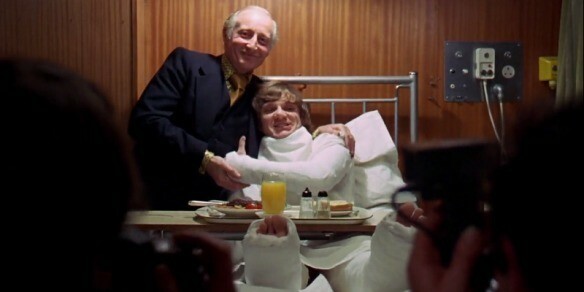
The protagonist wakes up in the hospital with some injuries on his body. His mind, however, seems to have returned to what it was before the Ludovico method. Thus, he regains his way of speaking, his arrogance and his violent imagination. His face appears once more in the press, but this time he is profiled as a victim of treatment. A stanchion reads: "Murderous government."
The minister visits Alex and apologizes, but his intentions are evident: he wants to erase his bad image and silence the opposition who, according to him, are making political use of the case. He gives her the food in her mouth while promising her a large sum of money and a good job if he stands by her side in front of the media.
Thus, the young man accepts the bribe, the doors of the room are opened and suddenly bouquets of flowers, journalists and cameras begin to enter. In seconds, the charade is constructed and they create a show to fool the people. The minister and the criminal are now photographed together.
Alex is back and is a star. His conditioning was reversed and his instincts are still alive, which is evident in the final scene, when he imagines himself having sex with a woman in the snow and a crowd applauding the scene.
See also:
- 40 classic movies of all time.
- Movie The fight Club
Cast characters
Alexander Delarge (Malcolm McDowell)

Alexander Delarge is a young sociopath, leader of a band, passionate about classical music and gratuitous violence. He is betrayed, imprisoned and subjected to Ludovico treatment that totally alters his personality. In the end, he suffers a fall that, in a stroke of luck, undoes the effects of the treatment.
Dim and Georgie (Warren Clarke and James Marcus)
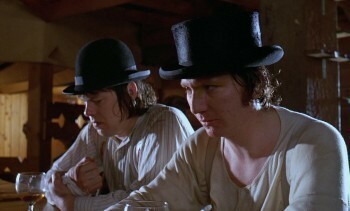
Along with Pete (Michel Tarn), Dim and Georgie make up the rest of the band. The companions defy the leader and betray him. They return as police officers, revealing that they continue to be dangerous by taking advantage of the position of power they now hold.
Priest (Godfrey Quigley)
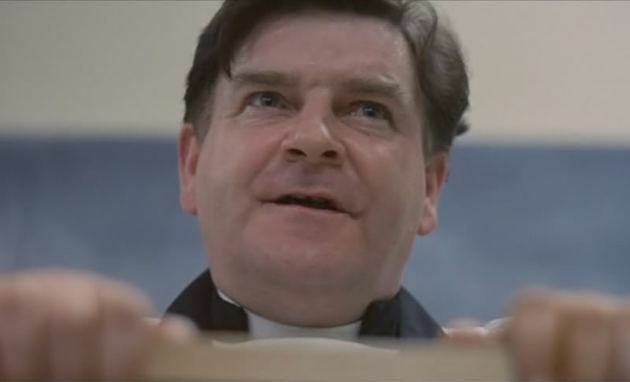
Representative of the Catholic Church, the priest only believes in rehabilitation through repentance and God's forgiveness.
He is, from the beginning, the biggest opponent of the Ludovico treatment. He defends that each one should be responsible for his actions and be able to make his own decisions, good or bad.
Home Secretary (Godfrey Quigley)
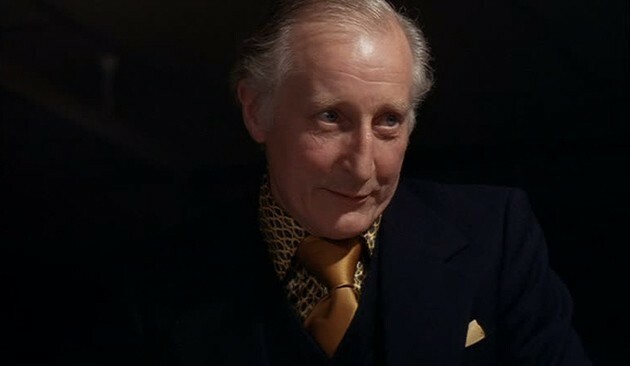
As a representative of the government that only cares about money and the exercise of power, the minister promotes Ludovico's treatment to solve the crime problem, without taking into account ethical issues involved.
After Alex's suicide attempt, his visit illustrates the demagoguery of a politician capable of anything to deceive the people.
Frank Alexander, the writer (Patrick Magee)
Despite the attack that killed his wife and left him a paraplegic, the writer is against Ludovico's treatment. As a leftist intellectual, he believes that it is a measure of a totalitarian government, which moves him to help Alex without knowing that it was the cause of his misfortune. Therefore, his compassion disappears when he recognizes who it is, which awakens his thirst for revenge.
Analysis of the film and topics covered
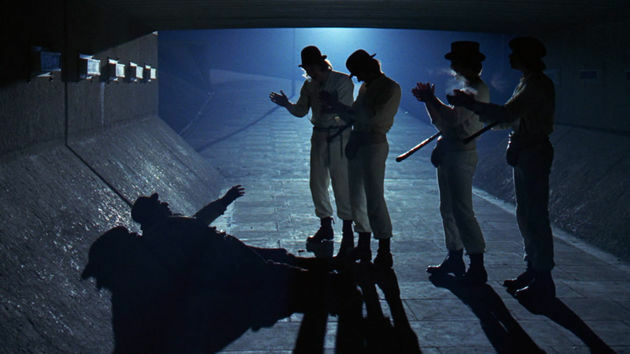
Juvenile delinquency
Caused by various political and social factors, juvenile delinquency is illustrated throughout the film. Alex and his classmates are frustrated teenagers, aimless, who only get excited through drug use and the practice of violent acts.
Within the gangs themselves, the hierarchies and structures of social oppression are repeated with tyrant leaders like Alex Delarge.
Poor human relationships and sex as aggression
The erratic behaviors of these youth are the result of an unhealthy society where human relationships are practically non-existent. Families, totally estranged from adolescents, cannot control or discipline them. Over time, consumed by work and fatigue, they exercise negligent parenthood and abandon their children.
Friendship and brotherhood relationships between partners also reveal fragility, struggles, and betrayals. Hence comes the absolute loneliness of these individuals who cannot depend on anyone or trust anyone.
The extreme sexualization that this entire society goes through translates into a notorious "objectification" of women who come to be seen as prey that men hunt for fun. Thus, following their more animalistic instincts, they transform sex into rape, attack and a mere demonstration of power.
Abuse of power and authoritarianism
One of the main reflections to which the film leads is the legitimacy of the punitive and crime containment measures promoted by the government. Using all weapons, without measuring the moral and ethical consequences, justice also becomes criminal.
The prisoners are seen as a problem that must be solved at all costs, even when it means forgetting their rights, their humanity and their individuality, controlling their minds.
The authoritarian state tries to solve social problems through violence, without re-education. The transformation in individuals does not occur thanks to their own will but as a result of manipulation or conditioning, similar to that used with animals. Alex Delarge and his partners in crime are products and symptoms of this dystopian society.
Meaning
According to the director's own statements, A clockwork orange is a social satire that reflects on the curses of psychological conditioning in the hands of an authoritarian government that has the opportunity to shape the minds of its citizens.
As the priest expresses it, goodness is only real if it starts from the will of the subject. Alex learns to behave, but not by his own choice, but through the institutional strength that forces him to be a model citizen. Like a clockwork orange (metaphor that gives title to the film), its interior is robotic, even when it seems natural on the outside.
Curiosities about A clockwork orange
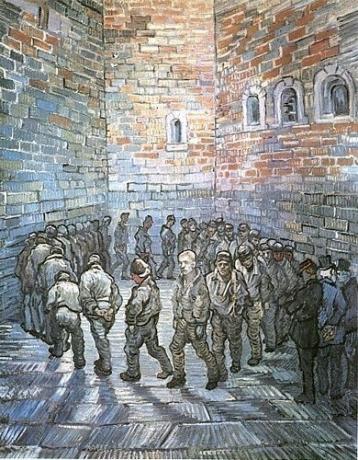
Malcolm McDowell, the lead actor, injured his eye during filming by the equipment used in the Ludovico treatment scenes.
To create the aesthetic of the band, Kubrick drew inspiration from two rival British social tribes: the mods and the rockers.
The author of the book invented a language, Nadsat, slang used by the band with rhymes. It is based on the Slavic languages, Russian and the cockney (rhymes of the British working class).
The film deliberately makes continuity errors to confuse the viewer, such as the position of plates and glasses.
The clockwork orange was not exhibited in the UK by Kubrick's decision following the criticism it received. In addition, it was censored in Brazil: first its exhibition was prohibited and then it was projected blocking the nudes.
Alex singing "Singing in the Rain" was not part of the script. The director filmed the scene several times but felt something was missing, so he asked the actor to sing and dance. That is the song that he remembered at that time.
The scene of the prisoners walking in a circle in the homeland while Alex conversed with the priest, recreates a painting by Van Gogh called Prisoners exercising (1890).
Stanley Kubrick, director
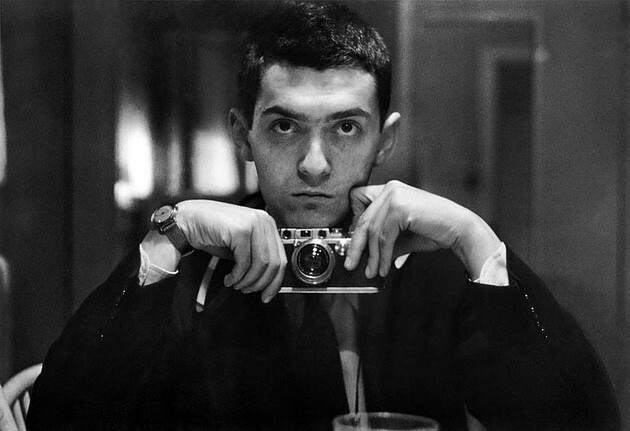
Stanley Kubrick (July 26, 1928 - March 7, 1999) was an American film director, screenwriter, and producer. Considered one of the greatest directors in history, he made highly controversial films that propose profound reflections on humanity and social life.
A clockwork orange It is considered by many to be his most disruptive film, reaching the status of a cult film and conquering the public with great success over time.
If you liked this article, you may also be interested in:
- Movie 2001: Stanley Kubrick's Space Odyssey
- The 30 best cult movies
(Text translated by Andrea Imaginario).

